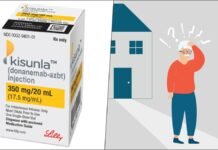
Key Points:
- World Alzheimer’s Day observed globally on September 21, 2025
- Disease now affecting younger populations beyond traditional elderly demographic
- Early symptoms include memory loss, behavioral changes, and social withdrawal
- Early detection and intervention can help slow disease progression
- Brain exercises, balanced diet, and emotional support crucial for management
- Over 55 million people worldwide currently living with dementia
Today, September 21, 2025, marks World Alzheimer’s Day, a global initiative to raise awareness about one of the most devastating neurodegenerative diseases affecting millions worldwide. This year’s observance carries particular significance as medical professionals report an alarming increase in early-onset Alzheimer’s cases among younger populations, challenging the traditional perception of this disease as exclusively affecting the elderly.
Understanding Alzheimer’s Disease: The Growing Crisis
Alzheimer’s disease represents a progressive neurodegenerative disorder characterized by the gradual death of brain cells, leading to severe cognitive decline. The condition systematically destroys memory, thinking abilities, and eventually, the capacity to carry out basic daily activities. What makes this disease particularly insidious is its progressive nature, where symptoms worsen over time, ultimately proving fatal in advanced stages.
Current global statistics reveal that over 55 million people worldwide are living with dementia, with Alzheimer’s accounting for 60-70% of cases. The World Health Organization projects this number will nearly triple by 2050, making it one of the most pressing public health challenges of our time.
Alarming Shift in Demographics
Healthcare professionals are increasingly concerned about the changing demographic profile of Alzheimer’s patients. While the disease traditionally affected individuals over 65 years of age, recent studies indicate a significant rise in early-onset cases affecting people in their 40s and 50s. This shift has prompted researchers to investigate environmental factors, lifestyle changes, and genetic predispositions contributing to this concerning trend.
Dr. Sarah Mitchell, a leading neurologist specializing in dementia research, explains that early-onset Alzheimer’s can be particularly devastating as it affects individuals during their most productive years, impacting careers, family responsibilities, and financial stability. The emotional toll on families dealing with a diagnosis in younger patients is often more severe due to the unexpected nature of the condition.
Critical Warning Signs and Symptoms
Recognizing Alzheimer’s symptoms early is crucial for effective management and treatment planning. The disease manifests through various behavioral and cognitive changes that progressively worsen over time:
Cognitive Symptoms:
- Persistent memory loss affecting daily activities
- Difficulty with problem-solving and decision-making
- Confusion about time, place, or familiar people
- Challenges with language and communication
- Repeatedly asking the same questions
Behavioral Changes:
- Increased irritability and frequent anger outbursts
- Social withdrawal from friends and family activities
- Mood swings and personality changes
- Loss of initiative and motivation
- Difficulty managing financial affairs or following familiar routines
Advanced Warning Signs:
- Getting lost in familiar places
- Difficulty recognizing family members
- Inappropriate behavior in social settings
- Severe confusion and disorientation
- Complete dependence on caregivers for basic needs
Importance of Early Detection and Intervention
Medical experts emphasize that early detection of Alzheimer’s symptoms can significantly impact treatment outcomes and quality of life. While there is currently no cure for Alzheimer’s disease, early intervention can help slow its progression and maintain cognitive function for extended periods.
Recent advances in diagnostic techniques, including specialized brain imaging and biomarker testing, enable healthcare professionals to identify Alzheimer’s pathology years before symptoms become severe. This early detection window provides opportunities for lifestyle interventions, medication management, and family planning that can substantially improve patient outcomes.
Families are encouraged to seek immediate medical consultation if they notice persistent cognitive or behavioral changes in their loved ones, regardless of age. Healthcare providers can conduct comprehensive assessments including cognitive testing, brain imaging, and blood tests to determine the underlying cause of symptoms.
Comprehensive Management Strategies
While Alzheimer’s remains incurable, evidence-based management strategies can significantly improve quality of life for both patients and their families:
Cognitive Enhancement:
- Regular engagement in brain-stimulating activities such as crossword puzzles, sudoku, and memory games
- Learning new skills or languages to maintain neural plasticity
- Social interaction and meaningful conversations
- Reading, writing, and artistic activities
Lifestyle Modifications:
- Maintaining a Mediterranean-style diet rich in omega-3 fatty acids, antioxidants, and anti-inflammatory foods
- Regular physical exercise tailored to individual capabilities
- Adequate sleep hygiene and stress management
- Limiting alcohol consumption and avoiding smoking
Medical Management:
- FDA-approved medications like cholinesterase inhibitors and NMDA receptor antagonists
- Regular monitoring by healthcare professionals
- Management of co-existing conditions such as diabetes and hypertension
- Participation in clinical trials for experimental treatments
Family Support and Caregiving
Caring for someone with Alzheimer’s requires comprehensive support systems and resources. Family members and caregivers need education about the disease progression, effective communication techniques, and strategies for managing challenging behaviors.
Support groups, both online and in-person, provide invaluable resources for families navigating this difficult journey. Professional counseling services can help family members cope with the emotional stress and practical challenges associated with caregiving responsibilities.
Global Research and Future Hope
The scientific community continues to make significant strides in Alzheimer’s research, with multiple promising treatments currently in clinical trials. These include immunotherapy approaches targeting amyloid plaques and tau proteins, neuroprotective agents, and novel drug delivery systems designed to cross the blood-brain barrier more effectively.
Artificial intelligence and machine learning technologies are revolutionizing early detection capabilities, enabling identification of subtle cognitive changes years before traditional diagnostic methods. These technological advances offer hope for earlier intervention and more personalized treatment approaches.
Taking Action on World Alzheimer’s Day
As we observe World Alzheimer’s Day 2025, individuals and communities are encouraged to take proactive steps in supporting Alzheimer’s awareness and research. This includes participating in fundraising events, advocating for increased research funding, and promoting brain-healthy lifestyle choices within their communities.
Educational initiatives focusing on risk reduction, early detection, and support resources can help reduce the stigma associated with dementia while empowering families to seek appropriate care and support services.
The fight against Alzheimer’s disease requires collective action from healthcare professionals, researchers, policymakers, and communities worldwide. Through continued awareness, research investment, and compassionate care, we can work toward a future where Alzheimer’s no longer represents an inevitable decline but a manageable condition with effective treatments and, ultimately, a cure.














































